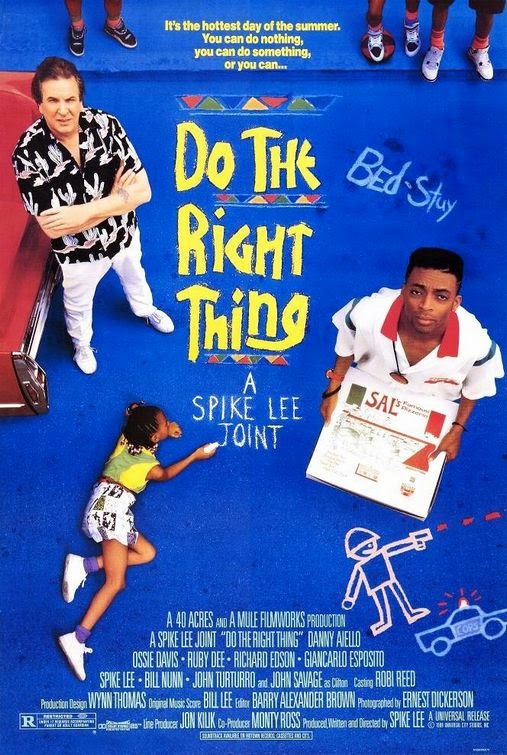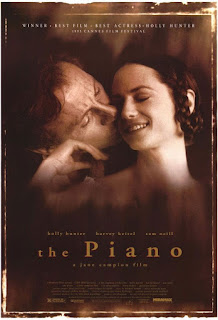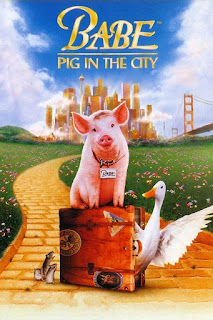June 30th: DO THE RIGHT THING (Spike Lee, 1989)
Spike Lee is one of the most unique voices to come out of American independent cinema in the 1980s. A graduate of the prestigious New York University film program, he counted among his influences Japanese director Akira Kurosawa and fellow NYU alum Martin Scorsese. His first feature, the sexually frank She's Gotta Have It was a big success considering its small budget, followed by the college-set musical School Daze.
Next, Lee dove headfirst into the choppy waters of New York City race relations with Do The Right Thing, a script he wrote in just two weeks. It was shot on location on a single block in the Bedford- Stuyvesant neighborhood, with cinematographer Ernest Dickerson behind the camera.
The cast includes Lee himself, Danny Aiello, John Turturro, Rosie Perez, Samuel L. Jackson, Bill Nunn, Martin Lawrence, and theatre veterans Ossie Davis and Ruby Dee. The musical score was composed by Lee's father Bill, with rap group Public Enemy contributing their new song "Fight The Power".
Lee's imagery is expressive and go-for-broke, with a music video-styled dance opening, exaggerated angles, energetic dollies, and characters talking to the camera. On the thematic end, he paints full portraits of the characters on both sides of the conflict, as well as remaining ambivalent about the use of violence.
The film premiered at the Cannes Film Festival, though it left without any awards. It received overwhelmingly positive critical notices, and was chosen as the #1 film of the year by partners Roger Ebert and Gene Siskel. Many journalists felt the film was likely to incite riots among black audiences, which proved false. At the box office, it quadrupled its budget.
Do The Right Thing received Best Film honors from the Los Angeles and Chicago critics' groups, and Golden Globe nominations for Best Film, Director, Supporting Actor (Aiello), and Screenplay. Unfortunately, Aiello and the script were its only Oscar nods, creating a small controversy about exclusion on its own.
Running time is approx. 2 hrs.










Comments
Post a Comment